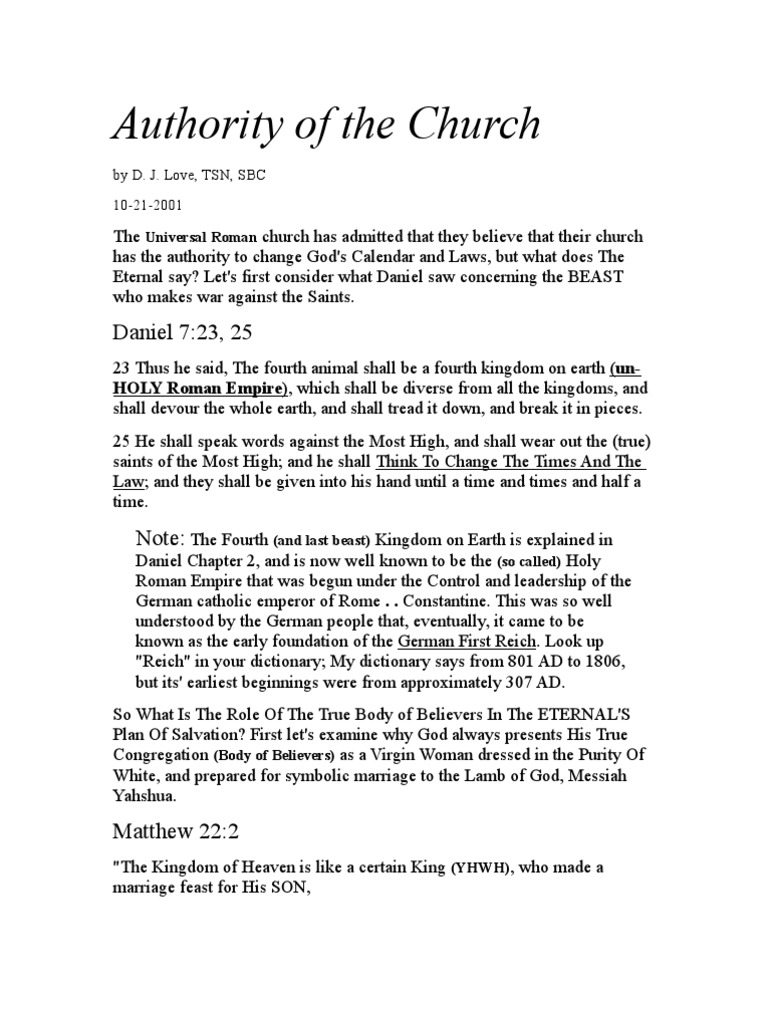The Roman Catholic Church stands as one of the most influential institutions in the history of Christianity. Spanning nearly two millennia, it has shaped the spiritual, cultural, and political landscapes of countless societies. Yet, what precisely defines the Roman Catholic Church? Is it merely a religious institution, or does it entail a broader tapestry of doctrine, authority, and worship that holds substantial implications for its followers?
To embark on this exploration, one must first consider the doctrinal foundations upon which the Church is built. Central to Catholic doctrine is the belief in the Holy Trinity—God as Father, Son, and Holy Spirit. This triune understanding of God forms the bedrock of Catholic theology and influences myriad aspects of faith, including the sacraments, morality, and the Church’s mission in the world.
Another critical component of Catholic doctrine is the concept of the Church itself as ‘the Body of Christ.’ This metaphor suggests a deep connection between Jesus and the community of believers, embodied in part by the sacraments. Through the sacraments, particularly the Eucharist, Catholics believe they partake in the divine nature of Christ. The sacramental life of the Church further delineates its unique identity, marking the faithful with grace and an invitation to live out their faith actively.
However, the question remains: how does the Church convey its teachings with authority? Authority in the Catholic Church is multifaceted. It emanates primarily from the Pope, regarded as the successor to St. Peter, who holds a position of spiritual and administrative leadership. The Pope’s role as the Vicar of Christ imbues his pronouncements with a level of gravity and significance unparalleled in other Christian denominations. Yet, the authority does not solely reside in the Pope; bishops and priests serve as essential intermediaries, sharing the teaching and discipline of the Church with their congregations.
This hierarchical structure often poses a challenge for modern believers. Dominant forces in contemporary society may question the nature of authority itself, suggesting that it can stifle personal interpretation of scripture or impede the authentic expression of faith. Does a rigid adherence to established authority detract from individual spiritual experience? This provocative inquiry invites reflection on the nature of faith in a world that often prioritizes personal autonomy over collective adherence.
In addition to authority, the Roman Catholic Church emphasizes the importance of Tradition. This concept refers to the transmission of beliefs and practices from one generation to the next, often seen as equal in importance to Scripture. The Church, through the Magisterium, or teaching authority, maintains that Scripture and Tradition are inextricable, reinforcing a holistic understanding of divine revelation. This contrasts sharply with more fragmented interpretations prevalent within varying Protestant denominations, which often prioritize sola scriptura—the belief that Scripture alone is the authority in matters of faith.
Equally noteworthy is the liturgical life of the Church, characterizing its worship as both a communal and sacramental experience. The Mass, the central act of worship, serves not merely as a routine gathering, but as a profound encounter with the Divine. The liturgy encapsulates centuries of theological reflection, theology, and artistry, blending Scripture, prayer, and community in one integral act. Through the celebration of the Eucharist, Catholics believe they engage in a living remembrance of Christ’s sacrifice, reinforcing their connection to the universal Church and highlighting the continuity of faith across generations.
What do these elements mean for the lived experience of a Catholic believer? Participation in the life of the Church fosters a communal identity that transcends mere individual belief. Worship becomes a shared history, a collective narrative that enriches the spiritual lives of its members. Yet, this communal aspect may also prompt individual believers to grapple with their faith in personal ways. If the Church embodies both Tradition and authority, how do believers navigate their personal relationship with God amidst the collective heritage of the Church?
The interplay between doctrine, authority, and worship gives rise to a tapestry of relationships—between the individual, the community, and the divine. Tension can emerge, especially when believers find themselves at odds with certain Church teachings or practices. In an age characterized by rapid change and increasingly pluralistic beliefs, many struggle to reconcile their experiences with established Church norms. This invites a broader conversation about the need for dialogue within the Church—a paradigm where questioning is not merely tolerated but encouraged as a pathway to deeper understanding and spiritual maturity.
As one reflects on the Roman Catholic Church, it is essential to consider not only its historical and doctrinal significance but also its contemporary relevance. The Church’s teachings challenge its followers to engage with complex moral issues and social justice concerns in an increasingly globalized world. The core teachings of love, charity, and respect for human dignity continue to resonate profoundly with modern ethical dilemmas, prompting Catholics to forge a faith that is vibrant and responsive to the needs of the world.
In conclusion, the Roman Catholic Church embodies a rich and intricate web of doctrine, authority, and worship. Its unique position within Christianity serves to illuminate the diverse expressions of faith that coexist within a broader theological context. Engaging with this heritage poses meaningful questions and challenges, evoking both the struggles and triumphs that accompany a genuine pursuit of spiritual truth. As believers navigate their personal journeys within this sacred tradition, they partake in a legacy that transcends time and space, continually inviting them into a deeper relationship with the Divine and one another.



